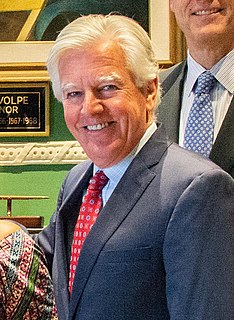A Quote by Fiona Hill
There is certainly this widespread anti-Americanism within the Russian elite, a feeling that the U.S. lost any moral high ground it could possibly have because of Iraq, Abu Ghraib, and increasing concern of U.S. intentions locally.
Related Quotes
I did a piece where I was talking about torture at Abu Ghraib, and I embroidered my hand with the image of the hooded Abu Ghraib prisoners who'd been tortured using a needle and thread. I know that meeting a Holocaust survivor when I was eight and seeing the tattoo on her arm from her time in the camps influenced my piece about Abu Ghraib.
Whether we consider Nazi Germany or Abu Ghraib prison, there were many people who observed what was happening and said nothing. At Abu Ghraib, one photo shows two soldiers smiling before a pyramid of naked prisoners while a dozen other soldiers stand around watching passively. If you observe such abuses and don't say, "This is wrong! Stop it!" you give tacit approval to continue. You are part of the silent majority that makes evil deeds more acceptable.
Why ... do the myths of America the Hateful take such powerful hold? Because anti-Americanism provides a useful emotional function which goes beyond logic and reaches deep into the darker recesses of the European soul. In centuries past those on the Left who wished to personalise their hatred of capitalism, who sought to make it emotionally resonant by fastening an envious political passion on to a blameless scapegoat people, embraced anti-Semitism. It was the socialism of fools. Which is what anti-Americanism is now.
































